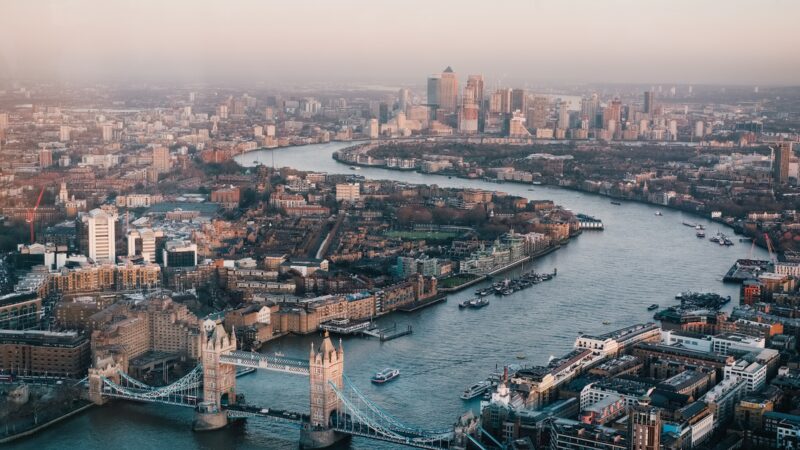During an interview for the H. L. Mencken Club, writer Derek Turner described political correctness as a ‘clown with a knife’, combining more petty nanny state tendencies with a more totalitarian aim, thereby allowing it to gain considerable headway as no-one takes it seriously enough. In a previous article, the present author linked such a notion to the coverup of grooming gangs across Britain, with it being one of the most obvious epitomes of such an idea, especially for all the lives ruined because of the fears of violating that ‘principle’ being too strong to want to take action.
The other notion that was linked was that of Islamic terrorism, whereby any serious attempts to talk about it (much less respond to it in an orderly way) is hindered by violating political correctness – with both it and Islamic extremism being allowed to gain much headway in turn. Instead, the establishment falls back onto two familiar responses. At best, they treat any such event with copious amounts of sentimentality, promising that such acts won’t divide the country and we are all united in whatever communitarian spirit is convenient to the storyline.
At worst, they aren’t discussed at all, becoming memory-holed in order to not upset the current state of play. Neither attitude does much good, especially in the former’s case as it can lead, as Theodore Dalrymple noted, to being the ‘forerunner and accomplice of brutality whenever the policies suggested by it have been put into place’. The various ineffective crackdowns on civil liberties following these attacks can attest to that.
However, while there is no serious current political challenge to radical Islam, there was for a time a serious enough alternative movement that was, and despite it not being completely mainstream, certainly left its mark.
That was Britain’s Counter-Jihad movement, a political force that definitely lived up to the name for those who could remember it. Being a loud and noisy affair, it protested (up and down the country) everything contingent with Islamism, from terrorism to grooming gangs. It combined working-class energy with militant secularism, with its supposed influences ranging as far as Winston Churchill to Christopher Hitchens. It was often reactionary in many of its viewpoints but with appeals to left-wing cultural hegemony. It was as likely to attack Islam for its undermining of women’s and LGBT rights as for its demographic ramifications through mass immigration.
While hard to imagine now, it was the real deal, with many of its faces and names becoming countercultural icons among the British right. Tommy Robinson, Anne Marie Waters, Paul Weston, Pat Condell, Jonaya English, as well as many others fitted this moniker to varying degrees of success. It had its more respectable intellectual faces like Douglas Murray and Maajid Nawaz, while even entertaining mainstream politics on occasion, most notably with Nigel Farage and UKIP (especially under the leadership of Gerard Batten) flirting with it from time to time.
While being a constant minor mainstay in British politics for the early part of the 21st century, it was in 2017 when it reached its zenith. The numerous and culminating Islamic terrorist attacks that year, from Westminster Bridge to Manchester Arena to the London Borough Market as well as the failed Parsons Green Tube bombing had (cynically or otherwise) left the movement feeling horribly vindicated in many of its concerns. Angst among the public was high and palpable, to the point that even the BBC pondered as to whether 2017 had been ‘the worst year for UK terrorism’. Douglas Murray released his magnum opus in The Strange Death of Europe, of which became an instant best-seller and critical darling, all the while being a blunt and honest examination of many issues including that of radical Islam within Britain and much of the continent itself – something that would have previously been dismissed as mere reactionary commentary. And at the end of the year, the anti-Islam populist party For Britain begun in earnest, with its founder and leader in Anne Marie Waters promising to use it as a voice for those in Britain who ‘consider Islam to be of existential significance’.
In short, the energy was there, the timing was (unfortunately) right and the platforms were finally available to take such a concern to the mainstream. To paraphrase the Radiohead song, everything (seemed to be) in its right place.
Despite this, it would ironically never actually get better for the movement, with its steep decline and fall coming slowly but surely afterwards. This was most symbolically displayed in mid-2022 when For Britain folded, with Waters citing both far-left harassment and a lack of financial support due to the ongoing cost-of-living crisis in her decision to discontinue. This came shortly after its candidate Frankie Rufolo quite literally jumped for joy after coming last in the Tiverton and Honiton by-election, the last the party would contest. All the movement is now is a textbook case of how quickly fortunes can change.
What was once a sizeable movement within British politics is now just as much a relic of 2017 as the last hurrah of BGMedia, the several jokes about Tom Cruise’s abysmal iteration of The Mummy (half-finished trailer and film alike) and the several viral Arsenal Fan TV videos that have aged poorly for… obvious reasons. Those in its grassroots are now alienated and isolated once more, and are presumably resorting to sucking a lemon. Why its complete demise happened is debatable, but some factors are more obvious than others.
The most common explanation is one the right in general has blamed for all their woes in recent years – what Richard Spencer dubbed ‘The Great Shuttening’. This conceit contended that reactionary forces would eventually become so powerful in the political arena that the establishment would do all it could to restrict its potential reach for the future. This was an idea that played out following the populist victories of Brexit and Trump, largely (and ironically) because of the convenient seppuku that the alt-right gave to the establishment following the Unite the Right rally in Charlottesville in 2017, leading to much in the way of censorship (on social media especially) with that event and the death left in its wake being the pretext.
Needless to say, it wasn’t simply Spencer and his ilk that were affected, confined to either Bitchute or obscure websites in sharp contrast from their early 2010s heyday. Counter-jihad was another casualty in the matter, with many of its orgs and figureheads being banned on social media and online payment services, limiting the potential growth that they would have had in 2017 and beyond. In turn, the only access they now had to the mainstream was the various hit pieces conducted on them, which unsurprisingly didn’t endear many to these types of characters and groups.
But if they couldn’t gain grassroots support (on social media or off it), it might be for another obvious reason for the collapse: the movement itself was not an organically developed one, of which made its downfall somewhat inevitable. This is because much of the movement’s main cheerleaders and backers were that of the conservative elite (or Conservatism Inc., for pejorative purposes), on both sides of the Atlantic, rather than the public at large. For Tommy Robinson in particular, the movement’s unofficial figurehead for the longest time, this was most apparent.
On the British end, it was a matter of promoting Robinson in differing ways. At best, they tactfully agreed with him even if disagreeing with his behaviour and antics more broadly, and at worst, they promoted him as someone who wasn’t as bad as much of the press claimed he was. That he had friendly interviews in the Spectator, puff pieces written for him in the Times, all the while having shows from This Morning and The Pledge allowing right-wing commentators to claim that he was highlighting supposed legitimate contentions of the masses demonstrated much of this promotion.
American conservative support came through similar promotion. This mostly came during his various court cases in 2018 and 2019, whereby many major networks framed him as a victim of a kangaroo court and a political prisoner (all the while failing to understand basic British contempt of court laws as they did so under ‘muh freedom’ rhetoric). However, most of the important American support was financial. This often came directly from neoconservative think tanks, mainly the Middle East Forum which gave Robinson much financial support, as did similar organisations. To what end is unknown, but given the war-hawk views of some involved (including MEF head Daniel Pipes), it is reasonable to assume something sinister was going on with that kind of help.
This in turn compounded another central reason as to the movement’s collapse: the genuine lack of authenticity in it as a whole. This is because the movement’s pandering to secularism and left-wing thought as expressed earlier are acceptable within mainstream political discourse. This sharp contrast between the inherently left-wing Robinson and Waters and their ideologically reactionary base made the movement unstable from the get-go. Much of it was a liberal movement designed to attack Islam as undermining the West as defined by the cultural revolution of the 1960s, not a reactionary one attacking that revolution as a whole as well much to the chagrin of its supporters.
Counter-jihad was therefore just simply a more radical version of the acceptable establishment attack on Islamism. As Paul Gottfried wrote in a recent Chronicles column, ‘Those who loudly protest that Muslims oppose feminism and discriminate against homosexuals are by no means conservative. They are simply more consistent in their progressive views than those on the woke left who treat Islamic patriarchy indulgently’. It is for this reason that the mainstream right were far kinder to counter-jihad and Robinson in the early 2010s than the likes of actual right-wingers like Nigel Farage and the Bow Group under its current leadership.
It is no surprise then that a movement with such inauthentic leadership and contradictory ideology would collapse once such issues became too big to ignore, with Robinson himself being the main fall guy for the movement’s fate. With questions being asked about his background becoming too numerous, the consistent begging for donations becoming increasingly suspect and people eventually getting fed up of the pantomime he had set up of self-inflicted arrests and scandals, his time in the spotlight came to a swift end. His former supporters abandoned him in droves, all the while his performance in the 2019 European Elections was equally dismal, where he came in below the often-mocked Change UK in the North West region, to audible laughter. Following his surprise return to X, formerly Twitter, and his antics during Remembrance Day, scepticism regarding his motives, especially amongst people who would otherwise support him, has only increased.
Now this article isn’t designed to attack British Counter-Jihad as a movement entirely. What it is meant for is to highlight the successes and failings of the movement for better attempts in the future. For one example, as other have discussed elsewhere, when noting the failings of the 2010s right, having good leadership with a strong mass movement and sound financial backing is key.
Those that can get this right have been successful in recent years. The Brexit campaign was able to do this through having moderate and popular characters like Nigel Farage, eccentric Tories and prominent left-wingers like George Galloway be its face, all the while having funding from millionaires like Arron Banks and Tim Martin, who could keep their noses mostly clean. The MAGA movement stateside is a similar venture, with faces like Donald Trump, Ron DeSantis and Tucker Carlson being its faces, with Peter Thiel as its (mostly) clean billionaire financier.
The British Counter-Jihad movement had none of that. Its leadership were often questionable rabble rousers, which while having some sympathy among the working class, often terrified much of the middle England vote and support needed to get anywhere. Its grassroots were often of a similar ilk, all the while being very ideologically out of step with its leadership and lacking necessary restraint, allowing for easy demonisation amongst a sneering, classist establishment. The funny money from neocon donors clearly made it a movement whose ulterior motives were troublesome to say the least.
Hence why counter-jihad collapsed, and its main figurehead’s only use now is living rent free in the minds of the progressive left and cynical politicians (and even cringeworthy pop stars), acting as a necessary bogeyman for the regime to keep their base ever so weary of such politics reappearing in the future.
However, this overall isn’t a good thing for Britain, as it needs some kind of movement to act as a necessary buffer against such forces in the future. As Robinson admitted in his book Enemy of the State, the problems he ‘highlighted… haven’t gone away. They aren’t going away.’ That was written all the way back in 2015 – needless to say, the situation has become much worse since then. From violent attacks, like the killing of Sir David Amess, to the failed bombing of Liverpool Women’s Hospital to the attempted assassination on Sir Salman Rushdie, to intimidation campaigns against Batley school teachers, autistic school children accidentally scuffing the Quran and the film The Lady of Heaven, such problems instead of going away have come back roaring with a vengeance.
In turn, in the same way that the grooming gangs issue cannot simply be tackled by occasional government rhetoric, tweets of support by the likes of actress Samantha Morton and GB News specials alone, radical Islam isn’t going to be dealt with by rabble rouser organisations and suspicious overseas money single-handedly. Moves like Michael Gove firing government workers involved with the Lady of Heaven protests are welcome, but don’t go anywhere near far enough.
Without a grassroots org or a more ‘respectable’ group acting as a necessary buffer against such forces, the only alternative is to have the liberal elite control the narrative. At best, they’ll continue downplaying it at every turn, joking about ‘Muslamic Ray Guns’ and making far-left activists who disrupt peaceful protests against Islamist terror attacks into icons.
As for the political establishment, they remain committed to what Douglas Murray describes as ‘Rowleyism’, playing out a false equivalence between Islamism and the far-right in terms of the threat they pose. As such, regime propagandists continue to portray the far-right as the villains in every popular show, from No Offence to Trigger Point. Erstwhile, the Prevent program will be given license to overly focus on the far-right as opposed to Islamism, despite the findings of the Shawcross Review.
In conclusion, British Counter-Jihad was simply a case of right place, right time but wrong movement. What it doesn’t mean is that its pretences should be relegated or confined to certain corners, given what an existential threat radical Islam poses, and as Arnold Toynbee noted, any society that doesn’t solve the crises of the age is one that quickly becomes in peril. British Counter-Jihad was the wrong movement for that. It’s time to build something new, and hopefully something better will take its place.



